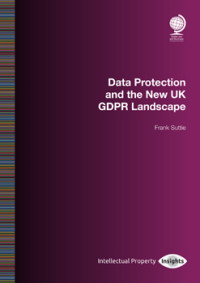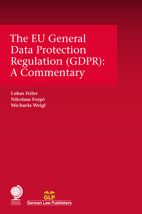
Author(s): Frank Suttie - Freeths
Publication date: Feb 2021
Format: A4 Softback
Pages: 144
Price: £95.00
ISBN: 9781787423701
How our eBook platform works
How permanent access, multi-user eBooks work
With the United Kingdom’s exit from the European Union now confirmed, this new Special Report provides a practical explanation of data protection laws as they will exist in a post-EU environment. GDPR will continue, and will be known as UK GDPR, reinforced by additional legislation specific to UK circumstances.
Data Protection and the New UK GDPR Landscape takes the reader through the key principles of data protection law and explores the scope of UK legislation and how to assure compliance with the law. Also featured are important recent developments including the Morrisons data breach case and the ECJ judgment on data transfers under the US/UK Privacy Shield.
Chapters will cover:
- a brief history of UK data protection law
- understanding terminology and how it is used
- the key data protection principles
- what it means to be a data controller or data processor
- transparency – how to draft privacy policies
- what is special about ‘special category data’?
- children’s data – duties reflecting the position of children
- international data transfers – the new UK approach
- information governance – what the law expects
- managing subject access rights
- artificial intelligence and data protection – the tension between innovation and privacy
- the likely future pathway for data protection in the UK
Each topic is illustrated with case studies and references to relevant case law.
This Special Report will be of interest to in-house counsel and individuals responsible for personal data management and governance, including data protection officers and anyone with responsibility for data systems and infrastructure at a senior level.
Key features at a glance:
- Walk yourself through UK GDPR with the first book addressing GDPR post-Brexit
- Highly practical approach for practitioners who require a sound understanding of the legislation and how it operates in practice
- Each topic is illustrated with case studies, such as why IP addresses constitute ‘personal data’ and keeping consents granular
- Tackles topics not frequently covered including the use of photographic and video materials (and how a photo taken in circumstances that don't constitute personal data can unexpectedly become personal data) and a chapter devoted to Artificial Intelligence
- Unpacks the issue of what counts as special category data across different types of organisations










